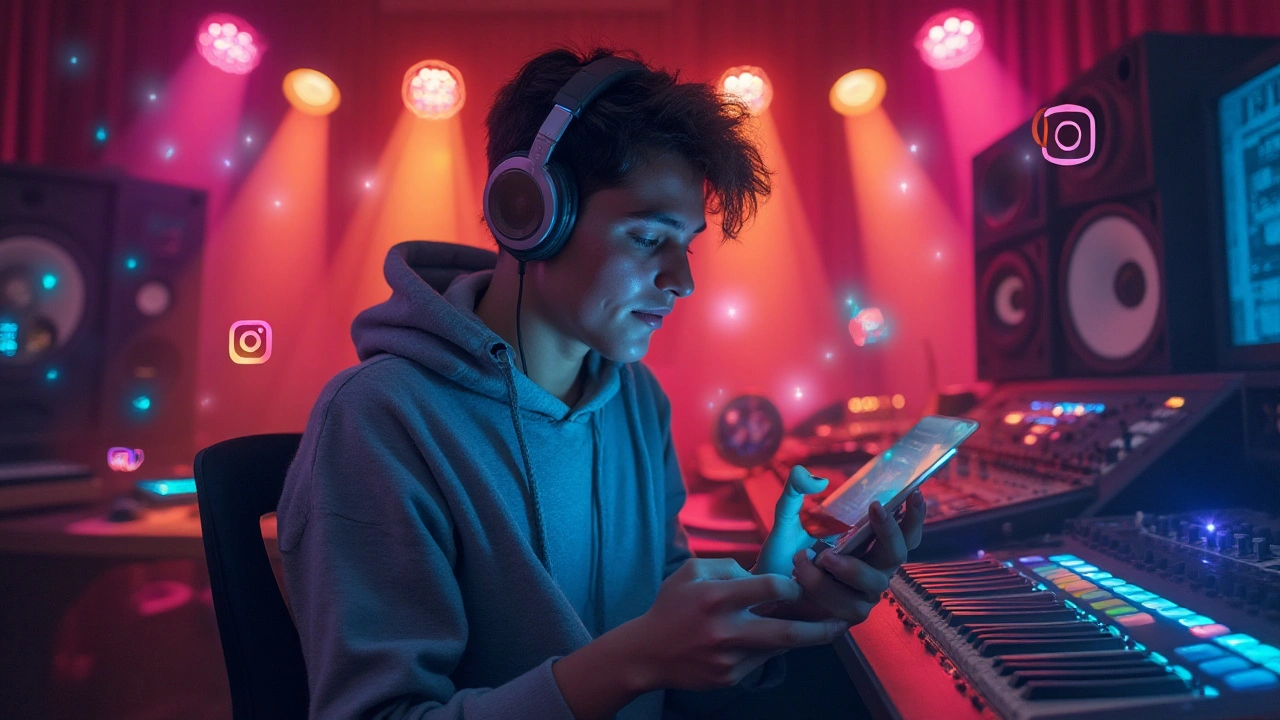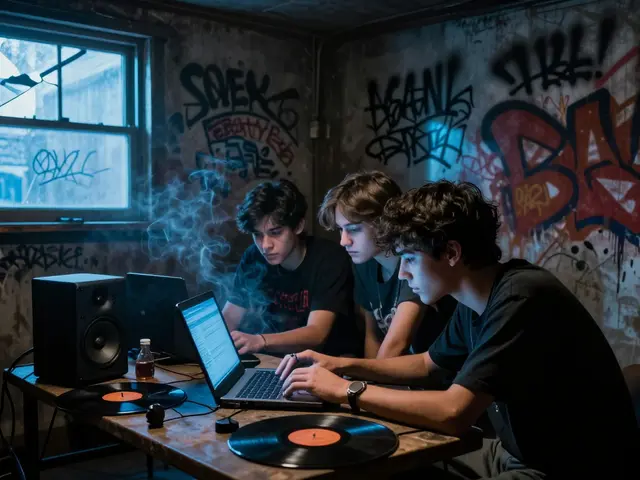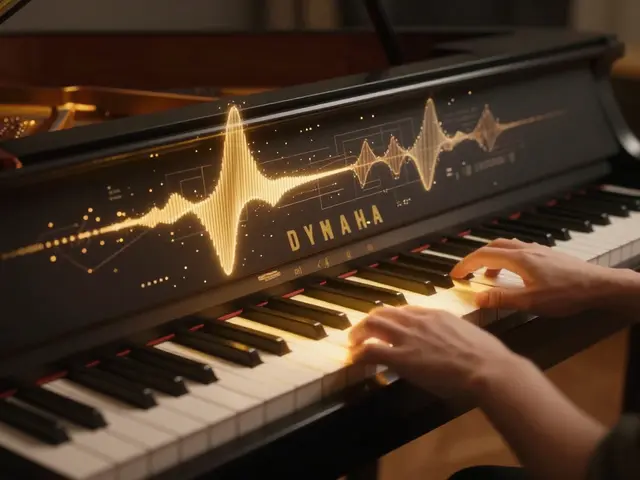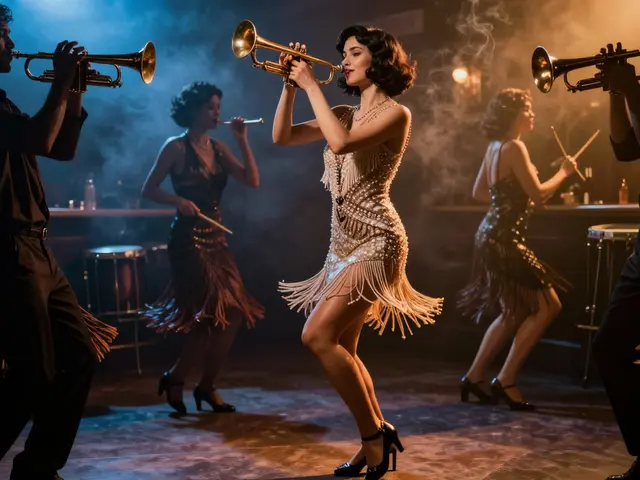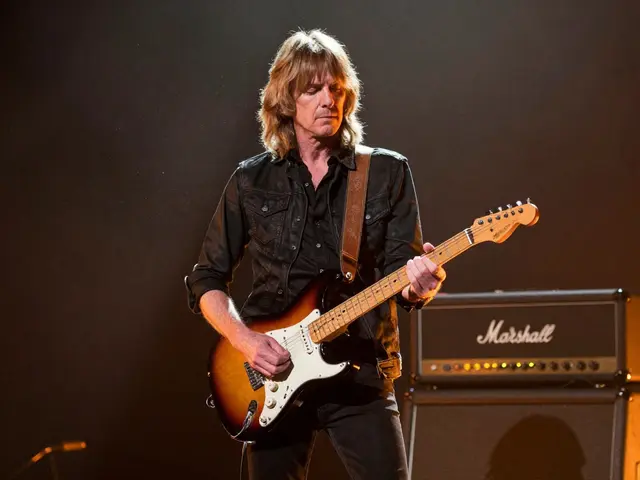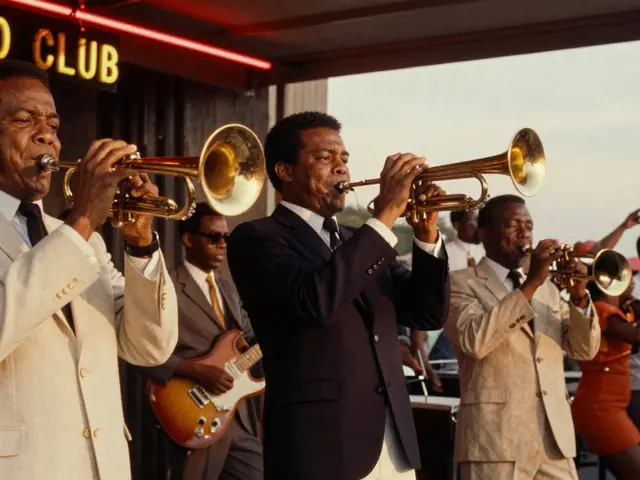Pop music and social media are now deeply entwined dance partners in the digital age, each influencing the other in groundbreaking ways. Once upon a time, an artist’s rise to fame depended heavily on record deals and radio play. Now it's just as likely to hinge on a few short dance clips on TikTok or an eye-catching Instagram post.
The realm of pop music has witnessed a radical change. Social media provides artists with direct avenues to their audiences, fostering a new kind of relationship between stars and their fans. Artists don't just release music; they release trending moments, interactive fan experiences, and viral phenomena.
The widespread digital connectivity has leveled the playing field in certain aspects, allowing unsigned artists to reach millions and seasoned performers to reinvent their image. How exactly does this landscape look, and what does it mean for the future of pop music? Let's dive in and explore the fascinating intersection where social media meets pop melody and rhythm.
- The Rise of Social Media in Music
- Viral Hits and Chart Success
- Artists and Fan Interactions
- Future Implications for the Music Industry
The Rise of Social Media in Music
There's no denying that social media has redefined what it means to make it big in the world of pop music. Back in the days, success stories were often shaped in soundproofed studios and broadcast through static-filled radio waves. Now, they unfold in the dynamic and ever-evolving playgrounds of platforms like TikTok, Instagram, and YouTube. This transition marks a democratization of musical fame. The power to break into the mainstream no longer resides solely with record labels but with the artists and fans who understand the digital space. The viral nature of these platforms has birthed a new era of music, where a catchy hook combined with a captivating video can launch an unknown artist into stardom overnight.
Artists can now reach their audiences at unprecedented speeds, solidifying fan bases, and solidifying careers with just a few taps of their fingers. Today, even established artists rely on the strategical use of these platforms to maintain their relevance in the industry. In this brave new world, an artist's ability to craft an online persona is almost as crucial as their music itself. For instance, Lil Nas X became a household name when his song "Old Town Road" went viral on TikTok, illustrating the platform's embodiment of the phrase 'overnight success'. According to a report by Statista, over 80% of music listeners in the U.S. state that they discover new music through social media, showcasing the instrumental role these platforms play in music discovery.
Perhaps one of the most striking shifts in this ecosystem is the direct communication line between artists and their audiences. Through stories, live streams, and behind-the-scenes content, fans can form more personal connections with their favorite musicians. In essence, social media acts like an all-access pass to an artist's life. A tweet can be just as powerful as a new album release, generating buzz and building anticipation. According to research, 55% of users engage with artists through comments, sharing, and interactive content, underscoring how social media fosters community building in music trends. Lady Gaga's Little Monsters and Beyoncé's Beyhive are prime examples of fan communities that thrive online—journeying together, empowered by their shared love for music.
Let's not forget the hidden gems that social media platforms uncover. Before anyone thinks of traditional casting calls, many music video directors and choreographers scour Instagram and TikTok for fresh talent and innovative ideas. The ecosystem thrives on collaboration, where influencers bring lyrical hooks to life in stunning visuals that captivate millions. As social media continues to evolve, so does its role in crafting both new and ongoing careers.
"The next wave of stars is already out there on social media—waiting to be discovered," says music industry expert Lyra Stevens, whose keen insights guide our understanding of digital transformation in the music landscape.
As such, the rise of digital influence in pop music's narrative is here to stay, inviting everyone into an intoxicating world where creativity knows no bounds. We've merely scratched the surface of what's possible, as new features and platforms reshape fandom and artistry. Will we ever return to a pre-social media age where pop stars dwelled only on billboards and the covers of glossy magazines? It's doubtful. More likely, we'll see more immersive experiences blurring the lines between virtual and physical, turning our music fantasies into reality.
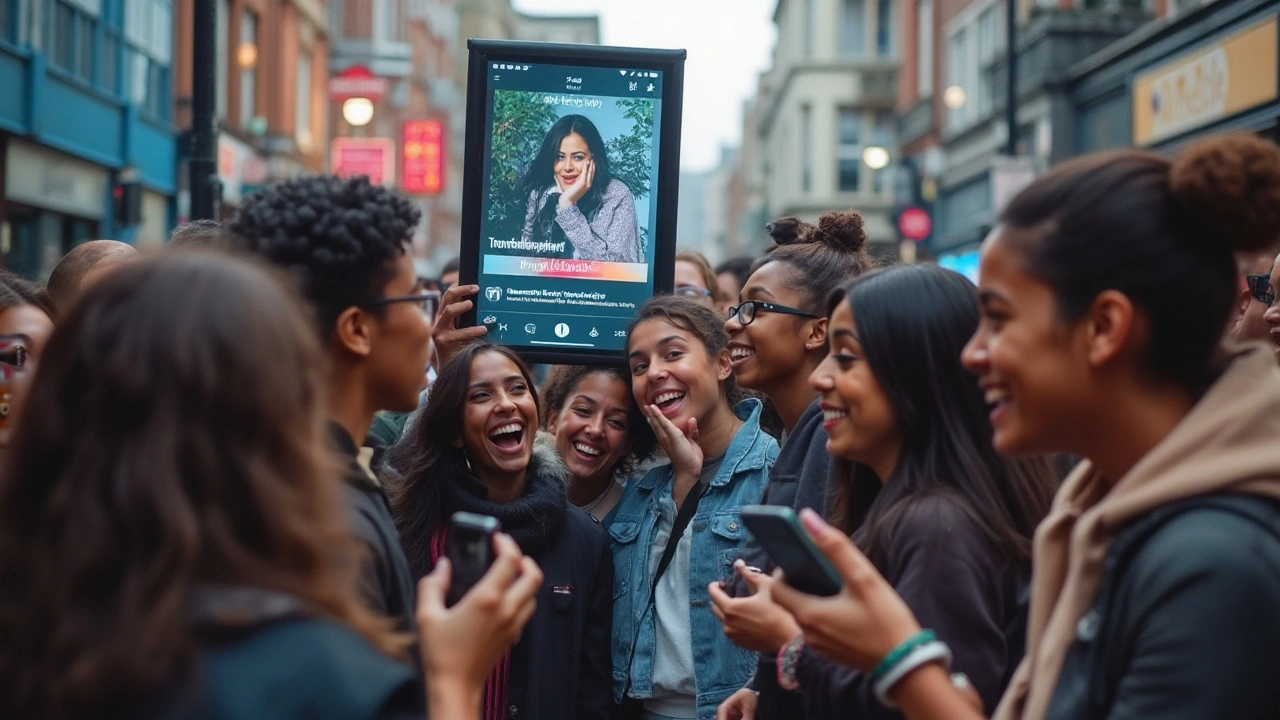
Viral Hits and Chart Success
The modern music industry has witnessed a dynamic shift thanks to the interplay between social media and pop music. This is where viral hits take the stage, captivating millions seemingly overnight and redefining the parameters of chart success. Platforms like TikTok have become breeding grounds for viral music trends, catapulting songs—and often obscure artists—into mainstream consciousness with a speed previously unfathomable.
One prime example is Lil Nas X’s "Old Town Road," a song that became a global sensation after a TikTok challenge. This unlikely hit broke records by staying atop the Billboard Hot 100 for 19 consecutive weeks. It was a testament to how social media can redefine the life cycle of a song. Such platforms have dismantled traditional barriers, allowing fans to be the driving force behind a song’s success, rather than industry insiders or executives.
What makes a song go viral is often a combination of its catchiness, relatability, and the existing online trends it can latch onto. Yet, even with this formula, the spontaneous nature of social media means that trends can be unpredictable. Take the recent surge of Fleetwood Mac's "Dreams" re-entering the charts decades after its release, fueled by a viral TikTok video of a man skateboarding while drinking cranberry juice. This illustrates how unpredictable social dynamics can breathe new life into established hits.
Influencers and Their Role in Viral Success
Influencers play a pivotal role in the narrative of viral hits. These individuals command vast followings on social media networks that are akin to audiences of traditional media giants. When a popular TikTok creator uses a specific track for their content, it can trigger a chain reaction of virality that leads straight to chart-topping success. According to an analysis by Hypebot, 67% of music fans discover new music through social media feeds, underscoring the power these influencers wield.
"The music industry must adapt and evolve beyond traditional methods. Social media has democratized music discovery, giving power to content creators and consumers alike." - Music Industry Analyst
However, the nature of virality is fleeting. Success on digital charts can be dizzyingly fast, serving as both a blessing and a challenge for artists. Maintaining relevance once the initial wave of a viral hit passes requires strategic planning and genuine fan engagement. Nevertheless, the emergence of viral hits facilitated by platforms like TikTok is reshaping traditional conceptions of music marketing and chart success. It brings forth a new era where anyone, regardless of their resources, can achieve global recognition overnight.
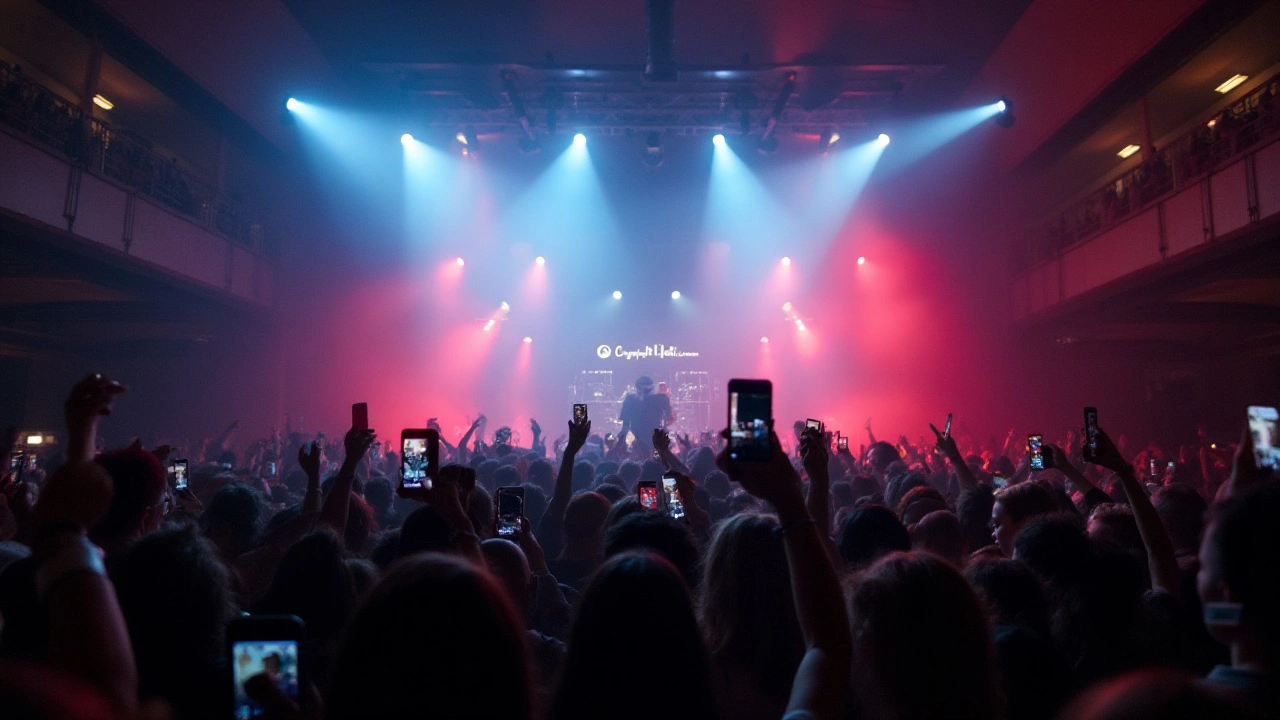
Artists and Fan Interactions
Artists today have redefined what it means to connect with fans, moving beyond conventional stages to digital engagements that feel deeply personal. Social media platforms have given singers and musicians the power to share every aspect of their creative process. They don't just announce a new single; they take fans behind the curtains, revealing snippets of songwriting sessions, studio hangouts, and sneak peeks of music videos. It's an invitation to be part of their universe. Platforms like Instagram and Twitter now serve as extended diaries where artists can post candid moments alongside polished promotional materials.
This kind of interaction brings a refreshing authenticity to the table, one that resonates well with modern audiences who crave genuine connections. Pop music stars like Billie Eilish and Taylor Swift have mastered the art of online engagement, sharing not just updates but stories that reflect their real personalities. Billie, for instance, often uses Instagram Stories to express her raw thoughts and emotions. It's more than just ❤️ and retweets; it's about building a community where fans feel seen and heard.
Artists have also found that these digital spaces allow them to respond to their followers in real-time. Whether answering fan questions on a live stream or commenting back on their posts, these interactions create magical moments that fans cherish. Clearly, the days of one-sided communication are long gone. In these participatory spaces, audiences can influence the music's direction, contributing ideas or expressing desires that artists might incorporate into their work.
A pivotal turning point in this domain was when Fortnite hosted a virtual concert with Travis Scott, which attracted over 12 million simultaneous players. This event exemplified how the intersection of social media and pop music can create groundbreaking experiences. What was once a mere medium for promotion has now turned into an integral part of the listening journey.
"The artist has to care, and the time of just 'being the artist' has long passed," comments music journalist Bobby Baker, highlighting the new landscape of fan involvement.
Social media platforms have even become testing grounds for new materials. Artists will often tease music pre-releases to gauge reactions and make impactful decisions based on the feedback. This interactive forum allows fans to feel as though they are part of an exclusive club, hearing music no one else has access to just yet. The energy and excitement in these engagements are unmatched, creating a buzz that only amplifies the song's allure once it officially drops.
As we gaze into the future, it's clear that this transformational bridge between artists and their audiences, fueled by social networks, will continue to evolve. What new innovations await us is hard to predict, but one thing is certain: the bond that artists and fans share today will only deepen as technology advances.

Future Implications for the Music Industry
As pop music continues to evolve in tandem with social media, the landscape of the music industry is poised for significant transformation. Social media platforms have become the launchpads for new music trends, directly affecting the traditional music release strategy. With artists frequently bypassing standard industry avenues, such as record labels and radio stations, the democratization of music distribution is accelerating. This shift is empowering new voices, making it possible for artists in remote areas to access global audiences, a feat that was once unimaginable.
One intriguing aspect of this new era is the rise of data-driven insights. Social media platforms, equipped with advanced analytics tools, allow artists and their teams to analyze audience reactions in real time. This data helps tailor marketing strategies and even influences the direction of future musical productions. For instance, noticing audience traction on a song snippet can inspire an artist to develop an entire track around that sound. The era where data informs creativity is well upon us, providing a unique blend of art and technology.
There's also a clear shift in how fan engagements are structured. With the ability to livestream, share stories, and create interactive polls, artists now have a direct line to their audience's preferences and tastes. This creates a more personalized fan experience, resulting in a community that feels involved in the music creation process.
"In today's music scene, fans are not just passive listeners; they are active contributors and co-creators," noted a report from the Music Business Association.The community-driven model not only enhances fan loyalty but also drives sustained commercial success.
The music industry's future is also about adapting to short-form content's growing popularity. Platforms like TikTok, where a few seconds can make or break a song, have pushed artists to think creatively about how to capture attention in limited time. This challenges traditional notions of song structure and content, urging artists to be more innovative in their approach. As such, short-form content has birthed viral music trends that hinge on catchy hooks and relatable themes, appealing to a generation that consumes content rapidly.
Interestingly, as more artists leverage social media for their promotional activities, there’s an increasing need to manage digital rights and address piracy concerns. The digital realm, while offering vast exposure, also poses significant risks with unauthorized distribution. The industry is already exploring advanced technology like blockchain to secure digital rights and ensure fair compensation for creators. This marks a pivotal step in maintaining the integrity of digital music and protecting artist revenues.
Looking forward, the symbiotic relationship between pop music and social media suggests that this dynamic will only grow stronger. The industry's adaptability to technological advancements will likely determine its capacity to thrive in the coming years. Embracing these changes, while respecting the artistry and creativity that define music, will be the ultimate balancing act for stakeholders across the board.

